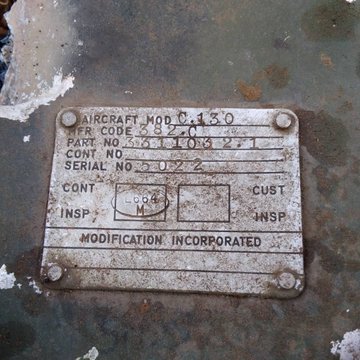Key points from the story: talks look like have been had with French; either this is a trial balloon with Canadian agreement or a French effort publicly to pressure us:
Canada facing calls to step up amid violence, instability in Mali
...
French Brig.-Gen. Cyril Carcy, who until August commanded Operation Barkhane, thanked Canada for that contribution during the CDAI conference even as he hinted at talks between Ottawa and Paris around the provision of more assistance.
“I do believe that discussion is already underway to ask for additional contributions,” Carcy said in French before listing several ways in which the Canadian military can help French and local African forces fighting terrorist groups in the region .
Those include more intelligence and sensors to help locate and identify Islamic militant forces as well as air-to-air refueling to support French fighter jets operating in the region.
“The Canadians can therefore participate without necessarily being present in Mali in the combat sense,” said Carcy, who is now the French defence attache in Washington, D.C....
https://globalnews.ca/news/7464112/canada-military-mali/
Giving direct, even if low-risk, assistance to the French anti-jihadist Op
Barkhane would be quite a
volte-face for this government (it is noteworthy that France is now also asking for more military help from fellow EU members https://www.aljazeera.com/news/2020/11/6/france-to-reduce-troop-presence-in-conflict-hit-sahel ). Perhaps the government has decided, in these uncertain times for relations with the US–even with a Biden administration, and with a UK in rather a bit of a Brexit bother, that now is the time to strengthen ties with our most important partner on the continent as several elements of our foreign policy are coming under review.
And, in relation to strengthening relations with France, it is noteworthy that on November 13 our foreign minister, François-Philippe Champagne, tweeted this ( https://twitter.com/FP_Champagne/status/1327319167259832323 ) after the French had taken out a senior al Qaeda leader in Mali:
Canada welcomes the success of the French Armed Forces’ operation. This news is particularly important for the security of civilians & the stability in #Mali.
I cannot recall a previous similar congratulation for a hit job on a terrorist by our government (well, maybe bin Laden) so maybe we were signalling a more “muscular” attitude in the French context.
Other factors, er, enabling taking part in
Barkhane: Britain has been supporting the operation with three large RAF transport helicopters in Mali for over two years ( https://www.forces.net/news/uk-extends-military-support-counter-terrorism-mission-mali ) so the Canadian Armed Forces would be working alongside two very familiar allies and sharing a common (if different) language with both.
On verra if the air comes out of the balloon soon.
Mark
Ottawa





